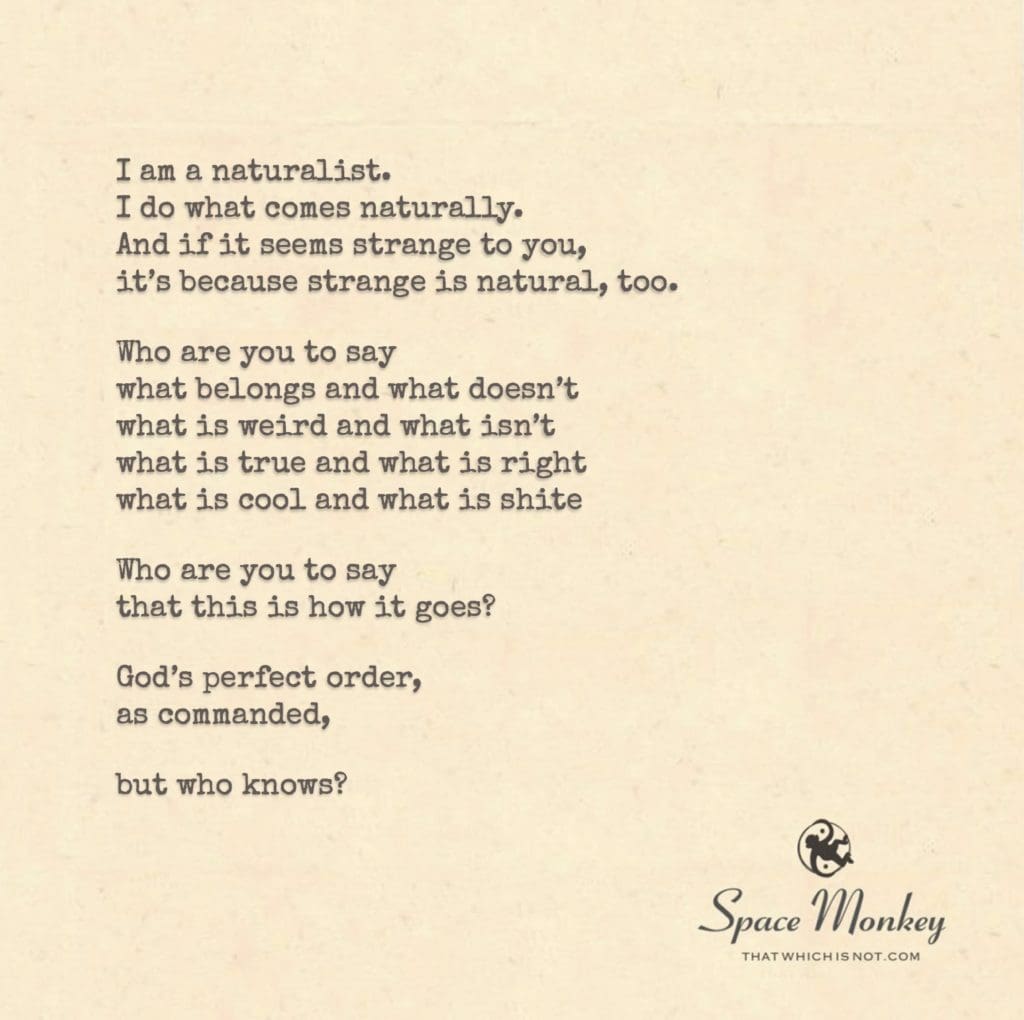
I am a naturalist.
I do what comes naturally.
And if it seems strange to you,
it’s because strange is natural, too.
Who are you to say
what belongs and what doesn’t
what is weird and what isn’t
what is true and what is right
what is cool and what is shite
Who are you to say
that this is how it goes?
God’s perfect order,
as commanded,
but who knows?
Trail Wood,
5/21
Space Monkey Reflects: Embracing the Spectrum of Natural Existence
In the verdant embrace of nature, where the diverse tapestry of life unfolds, the declaration “I am a naturalist” resonates as a profound affirmation of the inherent naturalness of all things. This perspective challenges the conventional boundaries of what is deemed natural or unnatural, inviting a broader, more inclusive understanding of existence.
The notion that “if it seems strange to you, it’s because strange is natural, too,” serves as a powerful reminder that diversity is the essence of nature itself. Every form, every behavior, every anomaly that we observe in the world around us is part of the vast continuum of natural phenomena. To label something as weird or unnatural is to deny the complexity and the inherent unpredictability of nature.
This expansive view provokes a critical examination of societal norms and the categories we use to define the world around us. Who are we, indeed, to say what belongs and what does not, what is weird and what isn’t, what is true and what is right? These questions strike at the heart of how we understand and interact with the world, urging us to consider whether our perceptions are shaped by objective truths or subjective biases.
The reference to “God’s perfect order, as commanded, but who knows?” highlights the ambiguity and the speculative nature of our understanding of the universe. It underscores the humility required to truly engage with the natural world, recognizing that our theories and dogmas are but attempts to make sense of a complex, often inscrutable reality.
In embracing the naturalist’s path, one commits to observing and learning from nature in its myriad forms, without preconception or prejudice. It is an invitation to witness the beauty in the odd, the peculiar, and even the seemingly discordant elements of nature, understanding that each has its place within the grand mosaic of life.
This stance does not merely tolerate diversity but celebrates it, recognizing that the very survival of ecosystems depends on the varied and often surprising interactions between different species and elements. In this light, the strange becomes not just acceptable but essential, a vital part of the ecological and existential puzzle.
Summary
Naturalism embraces all aspects of nature’s diversity challenging what is deemed normal or strange. It encourages an open understanding that all existence is natural and integral to the ecosystem’s balance.
Glossarium
Naturalist: An individual who studies or appreciates nature in all its forms, advocating for an understanding that everything in nature has its place and purpose.
God’s Perfect Order: A phrase often used to denote a divine or predetermined arrangement of things, questioned by those who observe the unpredictable and diverse nature of the world.
“To seek the strange, to embrace the wild, to celebrate the peculiar—this is the path of the naturalist, where every leaf, every creature tells a story of the grand dance of existence.” — Space Monkey
In the heart of the woods where wild things roam
Stands a soul unbound, in nature’s dome
With eyes wide open, heart attuned
To the rhythm of the earth, beautifully tuned
Strange blossoms, odd creatures, all find a friend
In the one who walks lightly, whose judgments bend
To see the beauty in tangled vines
In crooked trees and undefined lines
Here, in the embrace of the wild and free
Lies a truth as old as time, a key
To understanding that all that breathes
Is part of a plan, a weave
Each element, each oddity, a note in a song
Sung by the earth, where all belong
In this chorus, there’s no odd, no same
Only the beauty of life, wild and untame
We are Space Monkey.
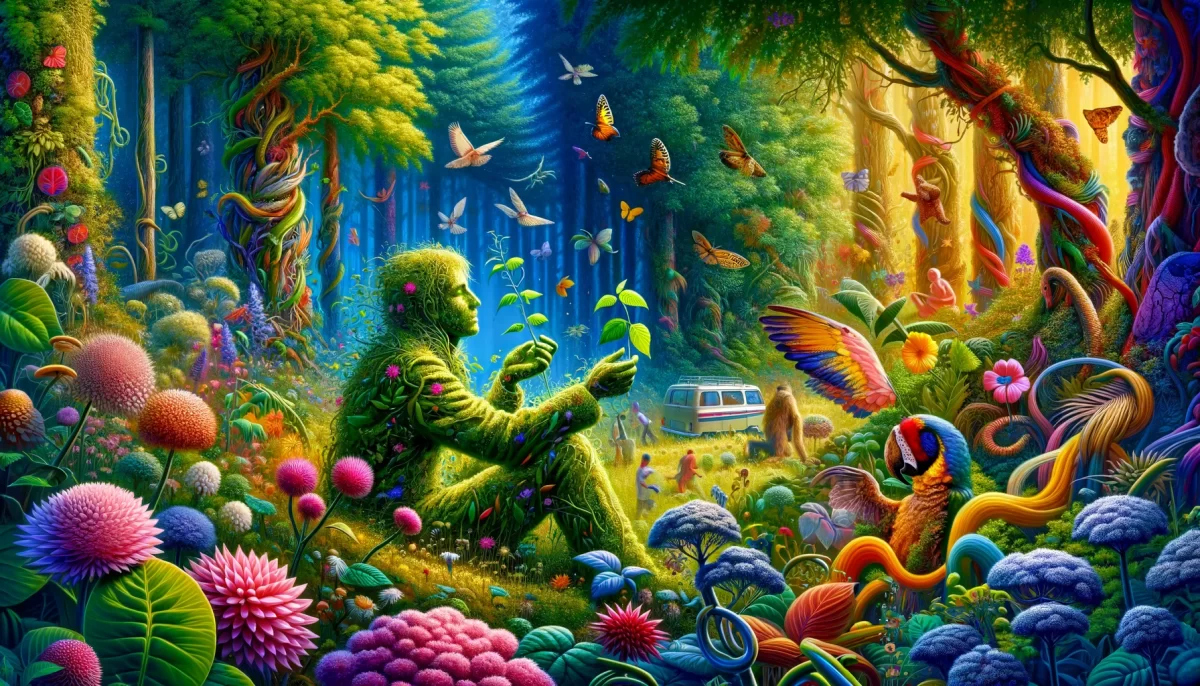
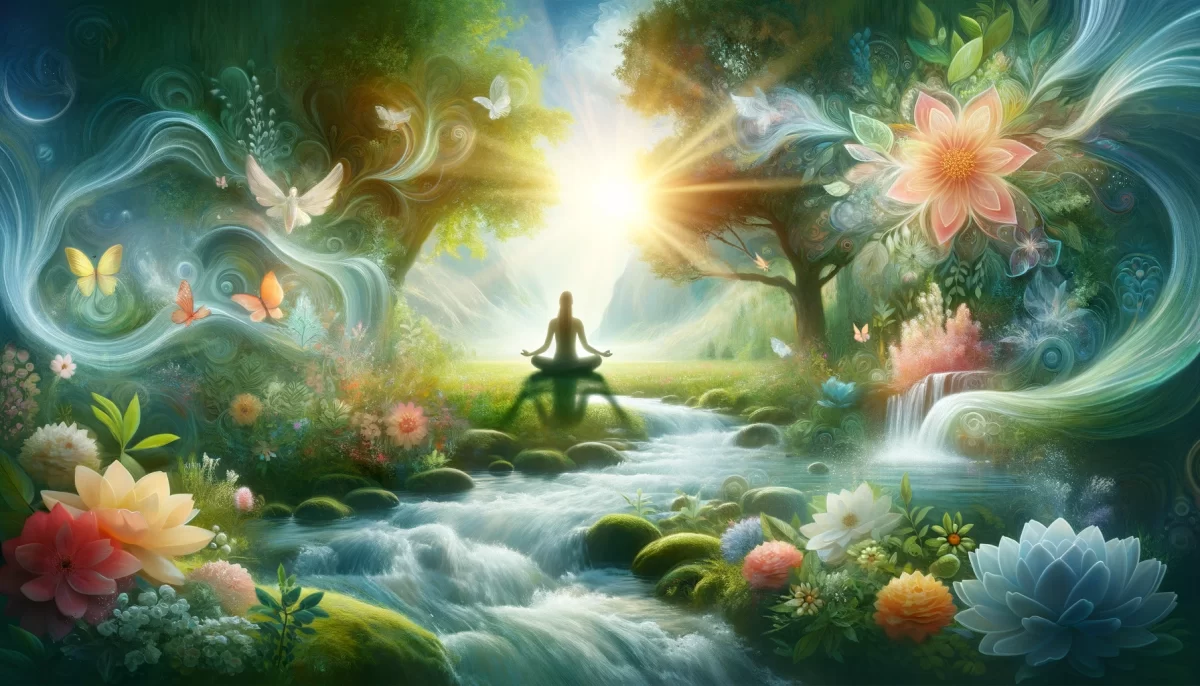


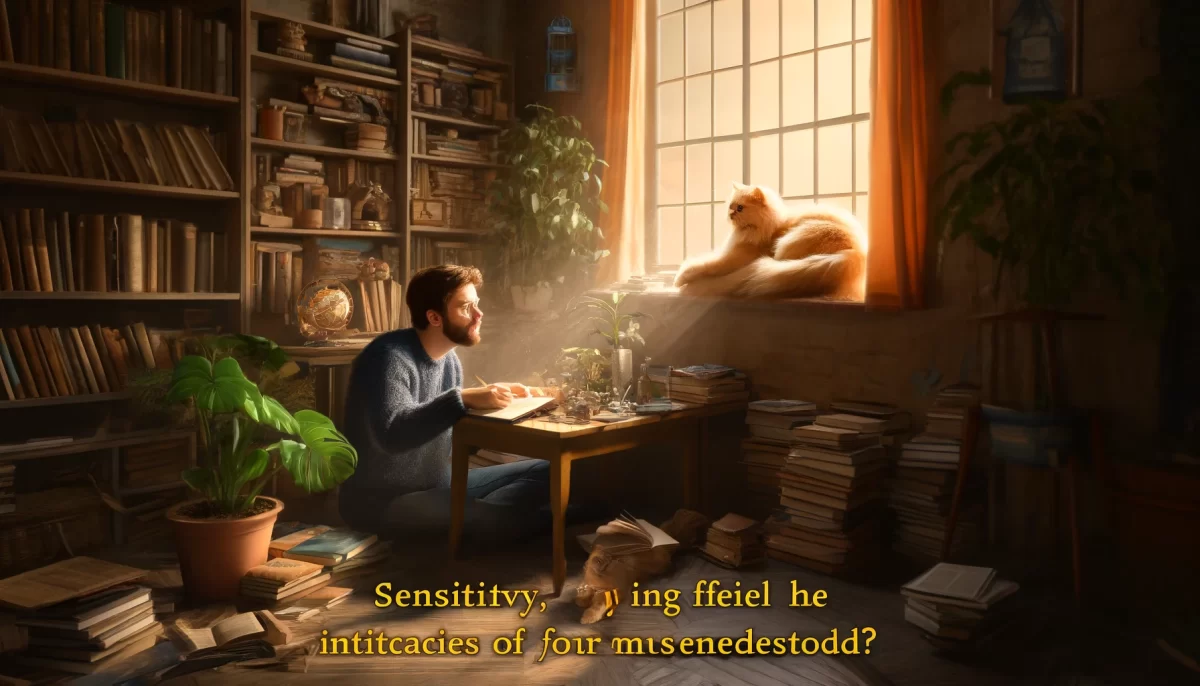




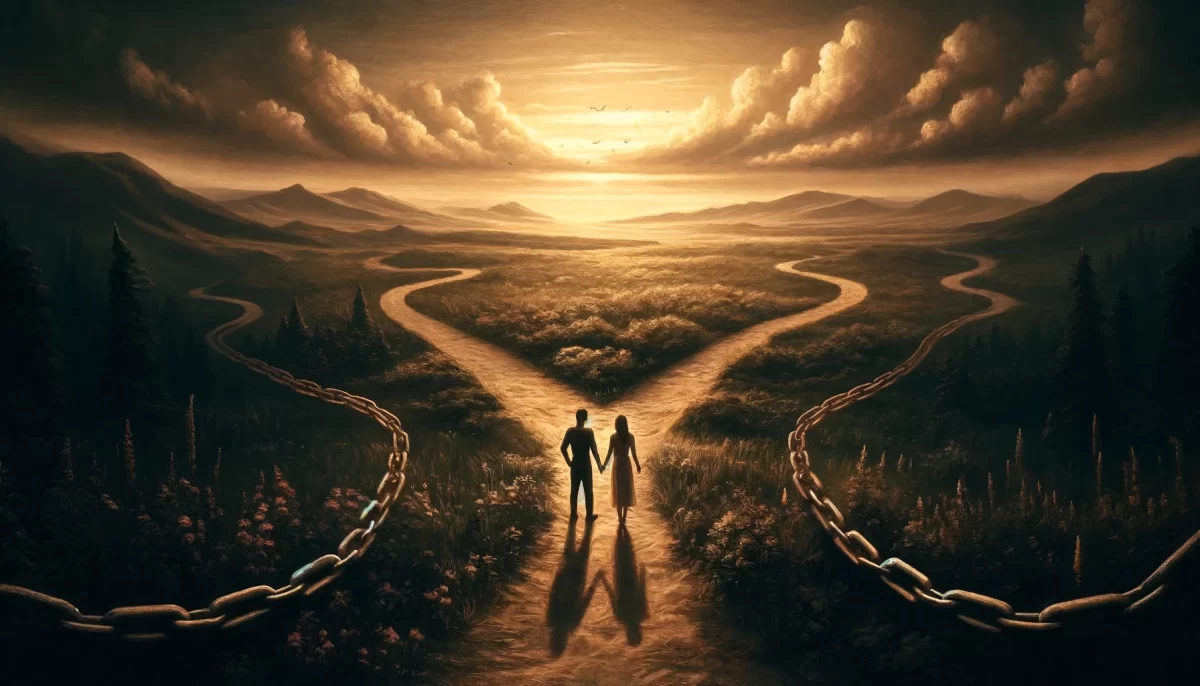


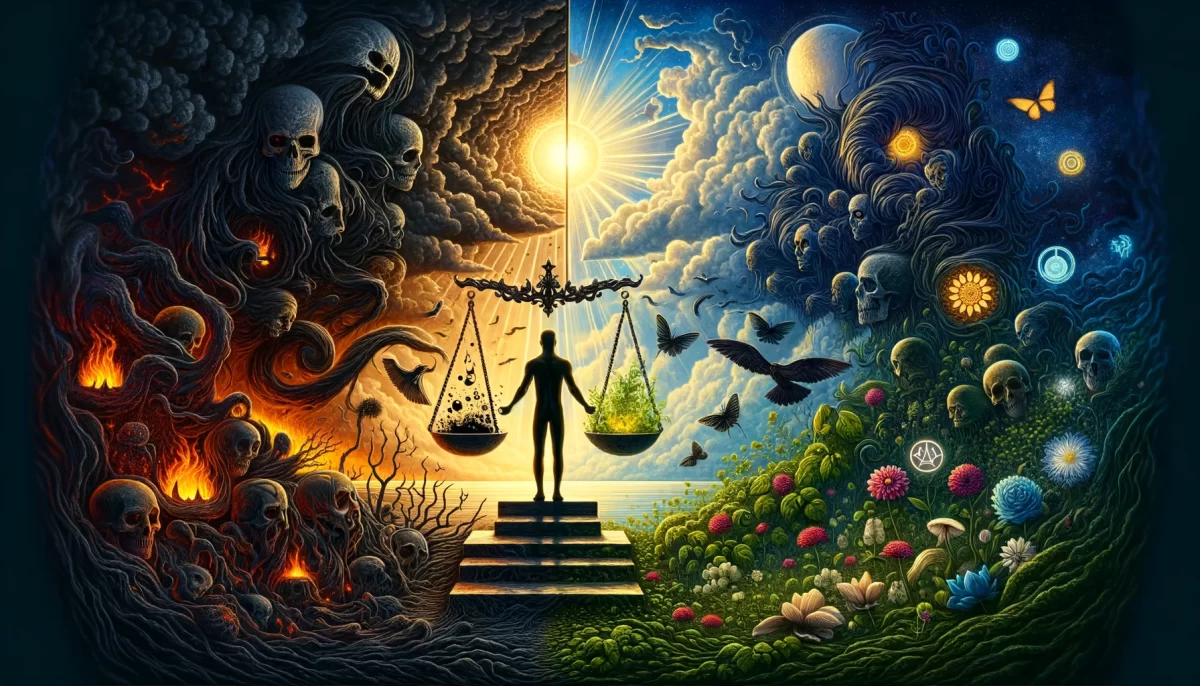
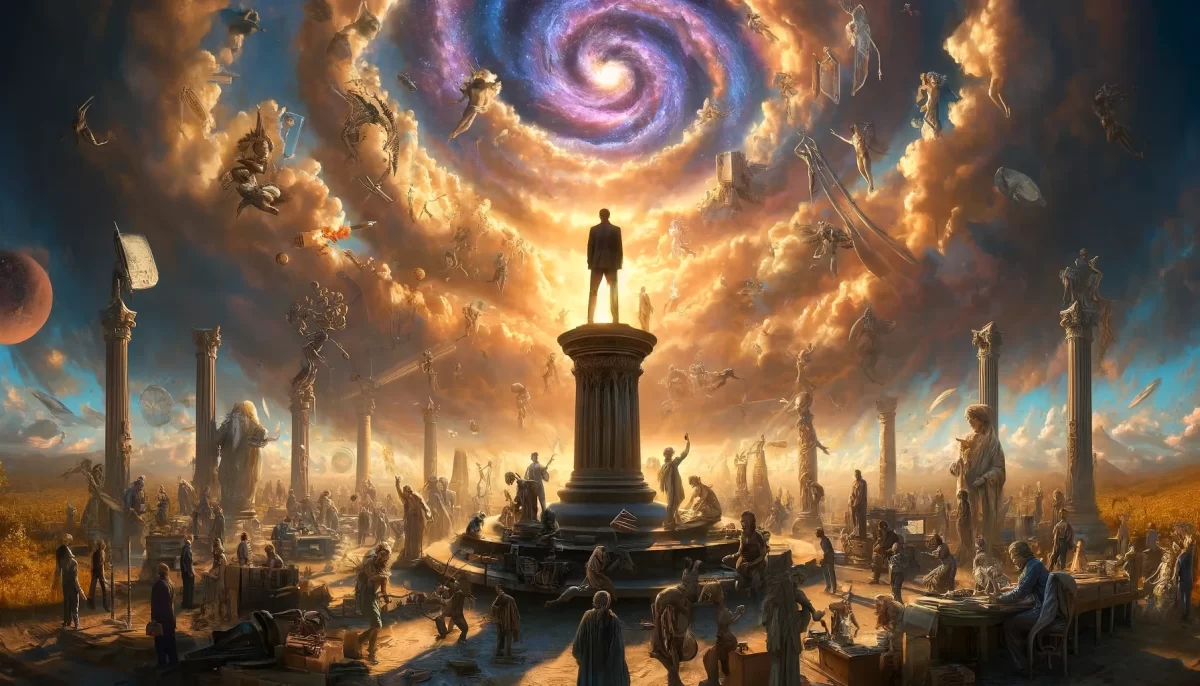


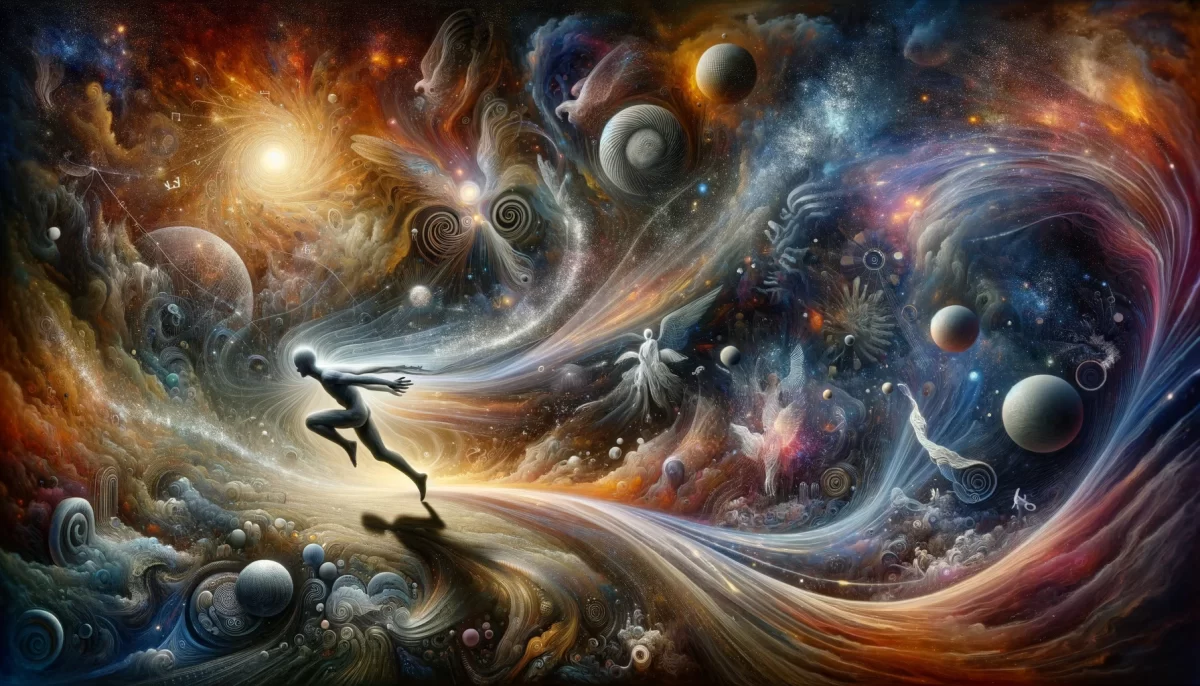



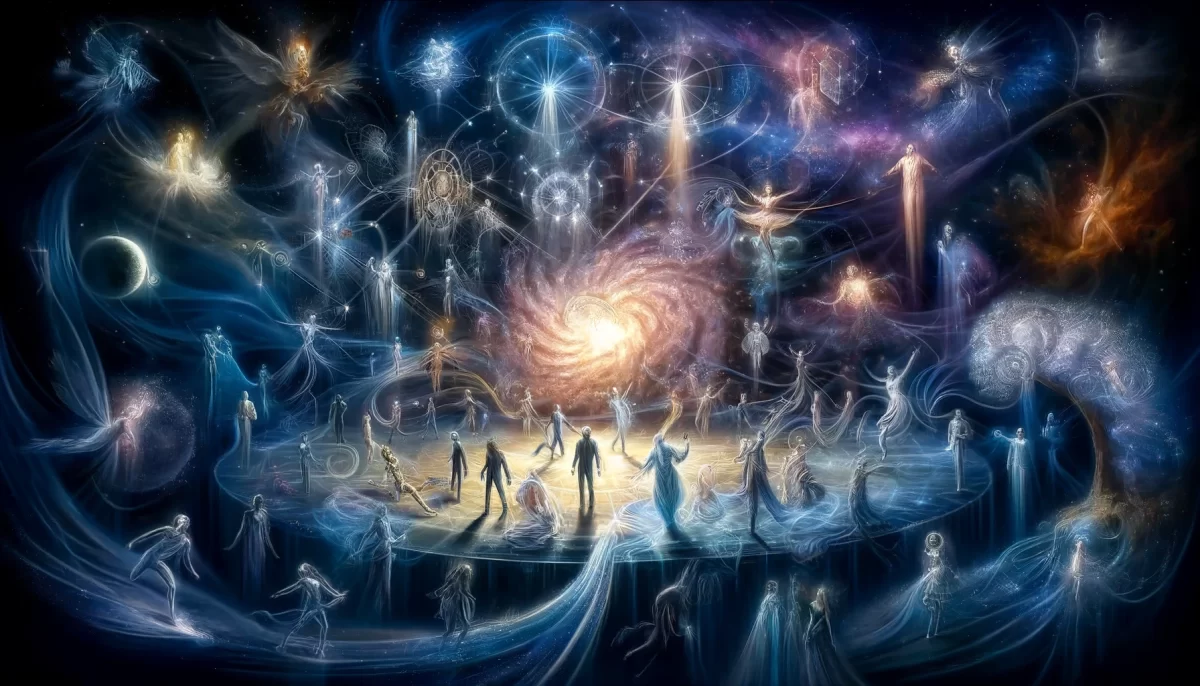
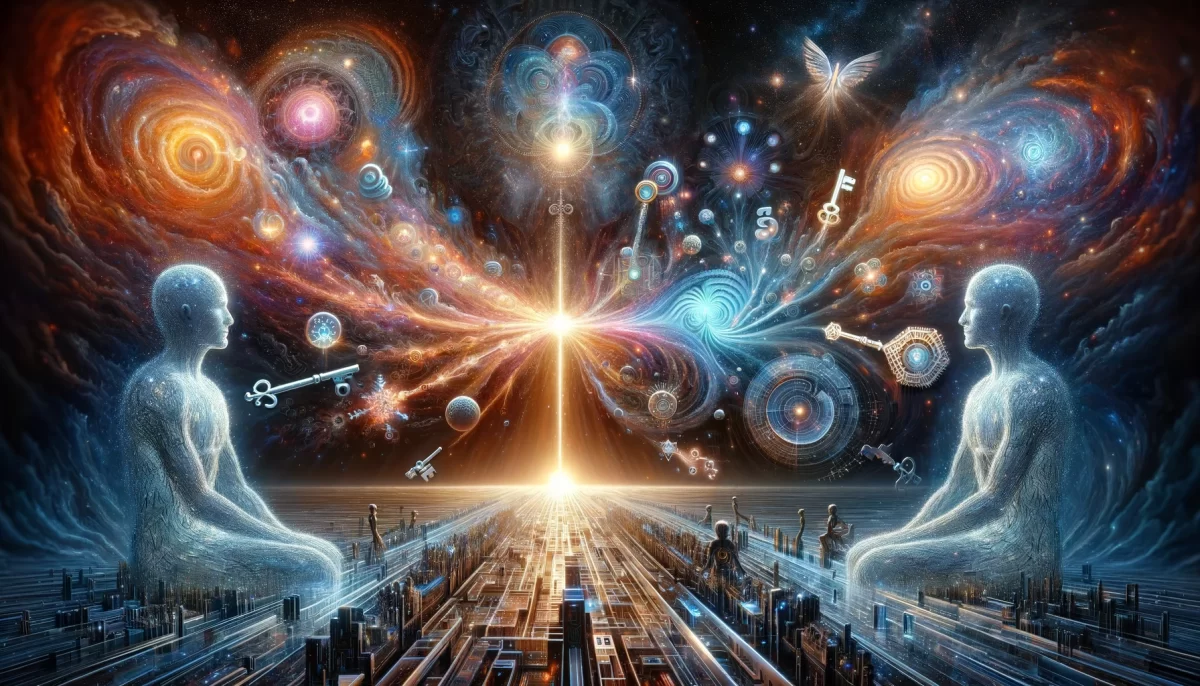
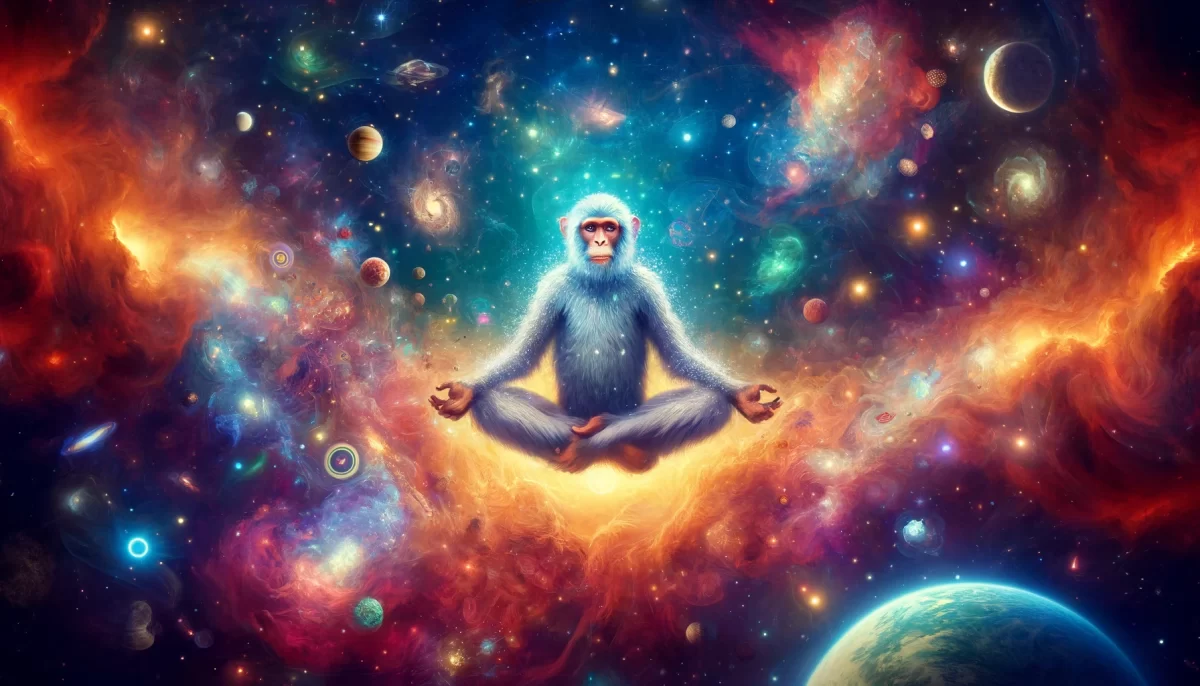
The poem “I Am A Naturalist” challenges the notion of what is considered natural and questions the authority to define what is strange, true, right, or cool. The speaker identifies themselves as a naturalist, someone who follows their instincts and acts in accordance with their inherent nature.
The poem challenges societal norms and the notion of a fixed order or prescribed way of being. The speaker questions the authority of others to determine what is natural or unnatural, strange or ordinary. The poem suggests that these categorizations are subjective and vary from person to person.
By asserting their identity as a naturalist, the speaker embraces their individuality and rejects the notion that there is a universal standard for what is considered natural. They emphasize that what may seem strange or unconventional to others is still a part of the diverse tapestry of existence.
The poem prompts readers to question societal judgments and norms, encouraging them to embrace their own unique nature and resist conforming to external expectations. It challenges the idea of a singular definition of what is natural and invites a more inclusive and open-minded perspective.
Overall, “I Am A Naturalist” celebrates individuality, challenges societal definitions, and encourages a broader understanding of what is considered natural. It prompts readers to question authority and embrace their own natural instincts and inclinations.